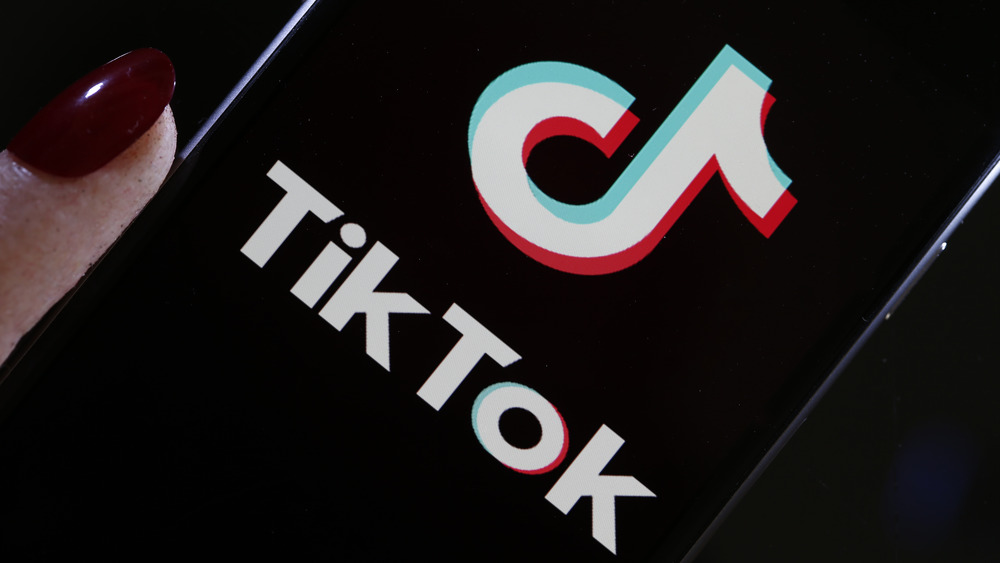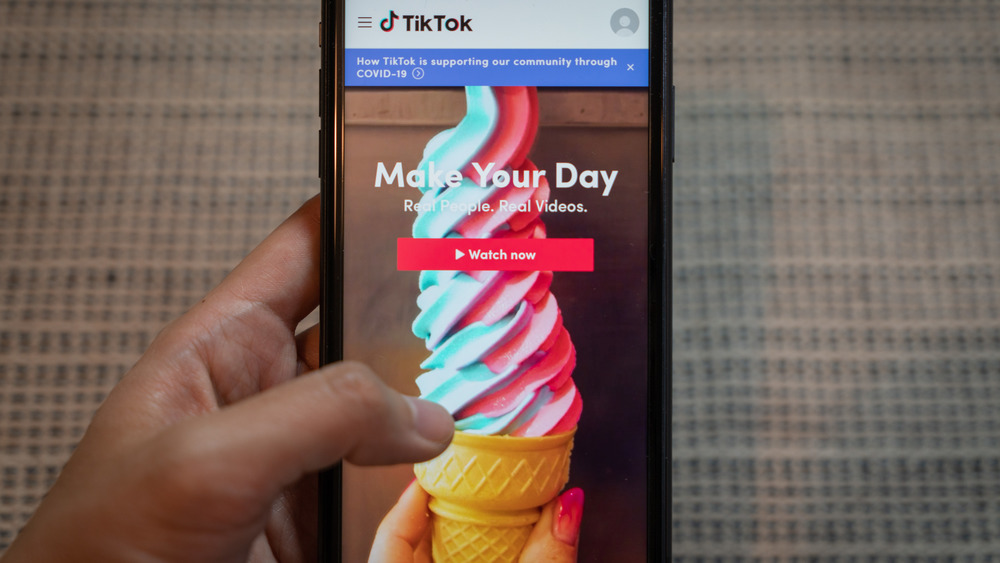The Biggest Problem With TikTok's Newest Food Trend
According to Buzzfeed, one of the biggest TikTok trends of 2020 was the "What I eat in a day" category of videos. The videos, grouped under #whatieatinaday, consist of clips that show what people eat. As TikTok has described in a heading for the hashtag: "The lockdown has made us fall in love with cooking and eating homemade food. Have you been recording your meals though? Let's take the opportunity and show what we actually eat in a day!"
The trend has also accrued accusations that TikTok is encouraging disordered eating. Health reports how Shana Minei Spence, a registered dietitian nutritionist, felt pressured to share her daily food intake on social media platforms but realized how her videos would affect others: "I never thought anything of it or how it could potentially trigger someone with a past eating disorder. I myself didn't realize that I was [playing] the comparison game and comparing what I was eating to others."
With the message repeated millions of times over, these TikTok videos can promote unrealistic standards and have the potential to be "fundamentally misleading," as clinical psychologist Colleen Reichmann told Health. The BBC estimates that 41 percent of TikTok's users are between 16 and 24 — a group that the National Eating Disorders Association notes is at higher risk of developing eating disorders.
If you are struggling with an eating disorder, or know someone who is, help is available. Visit the National Eating Disorders Association (NEDA) website or contact NEDA's Live Helpline at 1-800-931-2237. You can also receive 24/7 Crisis Support via text (send NEDA to 741-741).
TikTok has taken half measures to stop this
In September, The Verge reported that TikTok had placed restrictions on who sees advertisements for weight loss supplements and other related products, limiting the audience to users above 18. "These types of ads do not support the positive, inclusive, and safe experience we strive for on TikTok," Tara Wadhwa, TikTok's safety policy manager, explained (via TikTok). However, as The Verge notes, the issue is not just with advertisements but also with the videos TikTok presents to its users through its algorithm's For You Page.
"Few realize what a big impact these have on our mental well-being," Dr. Uma Naidoo explained to Healthline of the TikTok videos. "Now, more than ever, we need to be protecting and fortifying our mental health."
As Healthline explains, ways parents can help is by serving as role models for a healthy relationship with food, by noting their kids' social media consumption, and to ready themselves with nutritional advice as given by dieticians.
Still, to monitor this type of content, TikTok would have to actively change its current algorithms. Health advises that you if come across these kinds of TikTok videos in the Discover tab and don't want to see them, you can use the "Not Interested" button to hide similar content.

